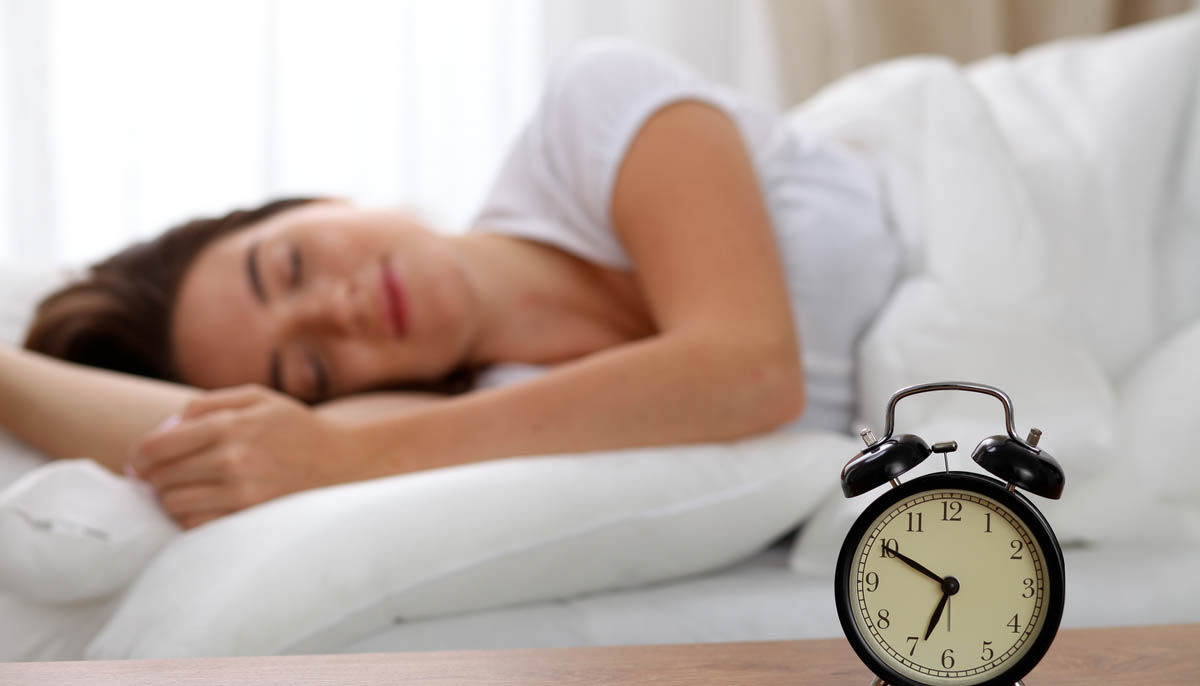Shutterstock
Everyone’s busy these days. But are you ever too busy to sleep?
Between work, kids, bills, and everything else you’ve got going on, you’re likely finding it hard to fit it all into 24 hours. Eventually, something has to give. That something is usually sleep for most people.

However, cutting out sleep to squeeze in other activities during the day can be a very slippery slope. Here’s what you need to know about sleep–including how much you need and what it does for your body.
Getting enough sleep is an important cornerstone of any healthy lifestyle. If you’re not sleeping enough, every other unhealthy habit in your life can be spun off from that. When you’re up late, it’s more likely you oversleep, which means you might miss your morning workout. You could even find yourself skipping breakfast, which is awful for you.
From there, you might crush a cup of coffee instead of eating just to keep the hunger at bay. When lunch rolls around, you’re still buzzing from the coffee, so you have something light, just a few calories. By the afternoon, however, you’re ravenous because your caffeine has worn off and you’ve barely eaten. To make up for that, you have a huge dinner and tons of snacks.
Then, by the time you should be in bed, you’re hardly tired since your sleep schedule has you staying up so late. You’re more likely to have unhealthy snacks late at night, and as you stay up later and later, this cycle only gets more pronounced.
As you can see, it’s vital you get enough sleep. Ideally, you should be getting around eight hours of sleep per night on average. Some people might be okay with as little as six hours of sleep, but those people are the exception, not the rule. Younger people may need even more sleep, as much as ten hours for some teenagers.
If you struggle with getting to sleep at a reasonable hour, try practicing good “sleep hygiene.” That means ensuring your bedroom is a calm, clean, peaceful place to rest. Banish phones, tablets, and other devices from the bedroom–the blue light they emit can mess with your body’s natural rhythms. If you typically read to fall asleep, break out an old-fashioned book instead. Finally, avoid caffeine in the afternoons and evenings so that you’re not too wired to sleep at bedtime.